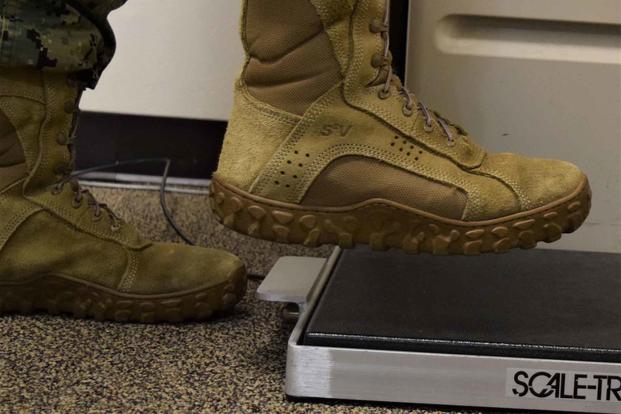A law enacted in late 2021 was intended to expand military health care coverage for eating disorders. But it still hasn't been fully implemented despite an October 2022 deadline to do so, and senators are demanding to know why.
In a letter Friday to Lester Martinez-Lopez, the assistant secretary of defense for health affairs, and Lt. Gen. Telita Crosland, the director of the Defense Health Agency, nine senators asked for an explanation about why Tricare is not covering residential care for eating disorders for adult dependents, contrary to "congressional intent."
"As our nation recently observed Eating Disorders Awareness Week, we urge the DoD to take immediate action to implement the provisions passed by Congress and signed by the president as part of the FY 2022 NDAA and provide active-duty dependents with access to care at residential treatment centers," the senators, led by Sen. Jeanne Shaheen, D-N.H., wrote in the letter, which was obtained by Military.com ahead of its release.
Read Next: Here's When Army Bases Honoring the Confederacy Will Shed Their Old Names
Under the fiscal 2022 National Defense Authorization Act, or NDAA, Tricare is supposed to cover inpatient and outpatient care for eating disorders for dependents of any age. The bill stipulates that inpatient care "shall" include residential treatment facilities "only if medically indicated for treatment of a primary diagnosis of an eating disorder."
The NDAA provision, which was based on stand-alone legislation known as the SERVE Act, was a change from previous coverage that was limited to partial hospitalization and intensive outpatient treatment for eating disorders for dependents up to age 20.
The Defense Department is covering outpatient and inpatient care for service members and their families, but is not covering residential treatment centers for "any adults," a spokesperson for Shaheen said.
"We would appreciate the DoD providing its clinical justification or further information on why the DoD has made the decision to not cover services provided at residential treatment centers," the senators wrote in their letter.
The senators gave the Defense Department until April 21 to reply.
A Defense Health Agency spokesperson, stressing the NDAA’s caveat that coverage should be for “medically necessary” care, told Military.com that Tricare has determined the treatment is not needed for adults “based on the review of currently available and reliable evidence.”
“We are committed to helping our service members achieve optimal health and performance through nutritional counseling or other medically necessary treatments,” spokesperson Peter Graves said in an email. “The DHA will continue to review currently available and reliable evidence.”
The letter comes after data from the Defense Health Agency showed that eating disorder diagnoses spiked during the pandemic. Findings published this week in the January Medical Surveillance Monthly Report showed the annual rate of eating disorder diagnoses from 2017 to 2021 nearly doubled. During that time period, 2,454 active-duty service members were diagnosed with anorexia, bulimia, binge eating disorder or another eating disorder.
In their letter, the senators also pointed to data showing military families suffer from eating disorders at greater rates than the general population.
A 2019 study noted that military children met the criteria for having an eating disorder at three times the rate of their civilian counterparts. From 2014 to 2018, 19,468 dependents were diagnosed with an eating disorder, according to Defense Department data cited in a 2020 Government Accountability Office report.
The letter was co-signed by Sens. Thom Tillis, R-N.C.; Tammy Baldwin, D-Wis.; Shelley Moore Capito, R-W.Va.; Richard Blumenthal, D-Conn.; Tim Kaine, D-Va.; Angus King, I-Maine; Amy Klobuchar, D-Minn.; and Tina Smith, D-Minn.
"It is our understanding that residential treatment for eating disorders is a generally accepted medical standard of evidence-based care effective in weight restoration and reduction of disordered behaviors for adult patients," the senators wrote. "Thus, congressional intent with the SERVE Act was to address this gap in coverage and to provide comprehensive care equivalent to what is provided for civilians."
Editor’s note: This article has been updated to include a statement from the Defense Health Agency provided after publication.
-- Rebecca Kheel can be reached at rebecca.kheel@military.com. Follow her on Twitter @reporterkheel.
Related: Senators Want Tricare to Cover Eating Disorders for Retiree Families













